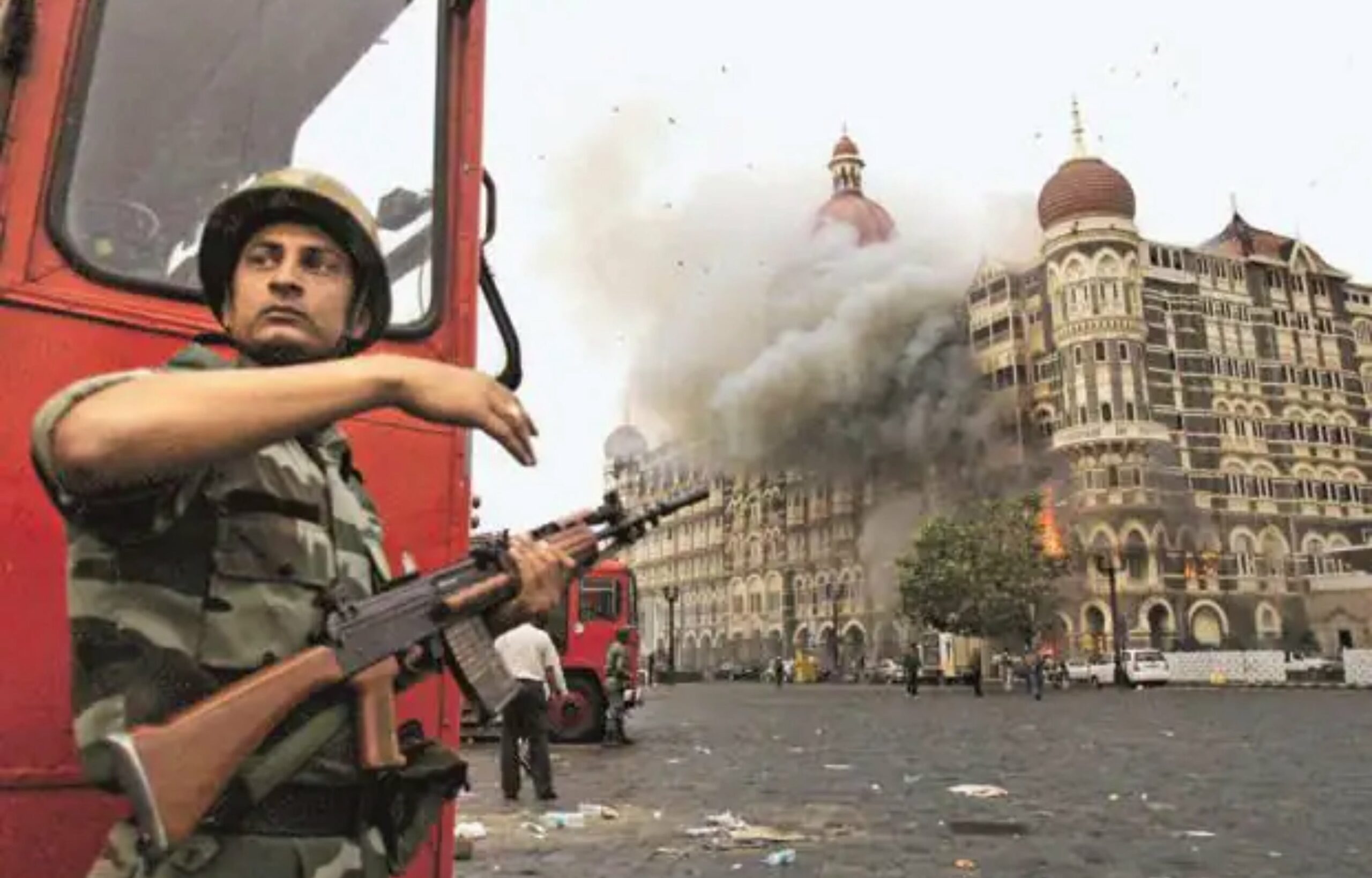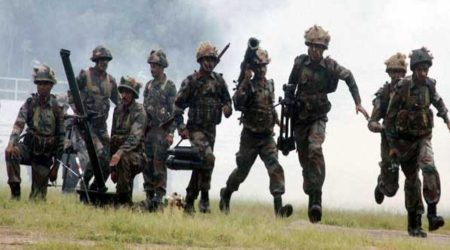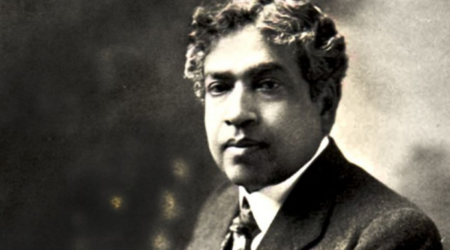By Vipul Tamhane
For the past few days the extra judicial executions and targets getting neutralized in Pakistan and Canada are attributed towards India borrowing a page or two from Mossad’s post Munich Olympics operations viz. Operation Wrath of God or Black-Ops.
However, these killings are not yet confirmed by the government and until then we will rely on the conventional yet effective means of tackling insurgencies and terrorism that India has deployed under the Modi administration.
India faces a complex internal security landscape marked by diverse challenges threatening national unity and stability. Terrorism and insurgencies in India are regionally concentrated, each with unique complexities. In Jammu and Kashmir, historical, political, and religious factors fuel a protracted conflict, exacerbated by cross-border influences.
Northeast India especially Assam, Tripura, Manipur, Nagaland and Mizoram, faces diverse issues, including ethnic tensions and demands for autonomy, groups like United Liberation Front of Assam (ULFA) and the National Socialist Council of Nagaland (NSCN) have historically sought independent states, challenging the nation’s territorial integrity.
The Maoist Naxalite insurgency in central and eastern India poses a persistent threat, with communist revolutionaries challenging state authority and exploiting rural grievances resulting into separatist movements emerging in various regions in central states i.e. Chhattisgarh, Jharkhand, and parts of Maharashtra, here the Left-Wing Extremism stems from socio-economic disparities, tribal displacement, and Maoist ideology.
An old movement in new form i.e. the Khalistani separatist movement seeking to create a sovereign Sikh state within Punjab has driven past terrorism in Punjab, while Northwestern states of Rajasthan and Gujarat contend with religious extremism and geopolitical tensions. India has been addressing these internal threats necessitates a comprehensive and nuanced approach, combining robust security measures with efforts to tackle socio-economic disparities and foster inclusive development. The evolving nature of these challenges underscores the imperative for adaptive and holistic strategies to safeguard the nation’s internal security.
India faces external terrorism threats primarily from four regions, Pakistan’s State-sponsored terror groups like Lashkar-e-Taiba (LeT) and Jaish-e-Mohammed (JeM) operate from Pakistan. From Afghanistan, concerns arise from the rise of the Taliban and potential presence of militant groups like Al-Qaeda, posing risks of cross-border infiltration and attacks through porous borders. While less prominent, certain Islamic groups in Bangladesh have historically posed sporadic threats.
India’s new approach since 2014
Since 2014, the Indian government has undertaken a comprehensive and proactive approach to combat terrorism on various fronts. In the regional arena, active participation in initiatives like SAARC and BIMSTEC has fostered cooperation and intelligence sharing with neighboring countries.
In response to the Taliban takeover in Afghanistan, India focused on humanitarian aid and engaged with regional stakeholders to counter potential terrorist threats. Geopolitically, strengthened ties with the United States led to enhanced counter-terrorism cooperation, while active participation in global forums like Financial Action Task Force (FATF) showcased India’s commitment to international collaboration.
The resilience of security forces, intelligence agencies, and civilian strengthening was crucial in this fight. India has signed MoUs on counterterrorism with numerous countries, including the US, UK, France, Russia, and China. These MoUs facilitate intelligence sharing, joint investigations, training programs, and capacity building initiatives. India actively participates in United Nations Security Council (UNSC) resolutions and committees related to counterterrorism, such as the UN Counter-Terrorism Committee (CTC). India is party to several Extradition treaties to enable the handover of individuals accused of terrorism or other serious crimes between respective countries.
In the military domain, significant investments in modernization, advanced weaponry, drones, and surveillance technology have enhanced India’s capability to detect and neutralize terrorist threats. The expansion and empowerment of special forces units and intelligence reforms have further improved the ability to track terrorist networks and prevent attacks. These multifaceted efforts signify a determined and comprehensive strategy to address the complex challenges of terrorism effectively.
India established a The Bay of Bengal Initiative for Multi-Sectoral Technical and Economic Cooperation (BIMSTEC) Technical Cooperation Centre for assistance and joint counter-terrorism exercises with the other BIMSTEC treaty nations viz., Bangladesh, Bhutan, Myanmar, Nepal, Sri Lanka and Thailand. India is party to several SAARC initiatives focused on regional cooperation against terrorism, including the SAARC Regional Convention on Suppression of Terrorism and Financing of Terrorism. With Shanghai Cooperation Organization (SCO), India commits to counterterrorism cooperation, intelligence sharing, and joint exercises in the Asian region.
In 2016, militants attacked an Indian army base in Uri, Kashmir, India, aimed at neutralizing terrorist elements responsible for these Uri attacks the Indian Army conducted surgical strikes in the Pakistani region across the Line of Control (LOC) to set an unprecedented instance of punitive will as a retaliatory measure with a precision and targeted approach, signaling India’s commitment to safeguarding its national security. In February 2019, the Indian Air Force launched airstrikes in Pakistan-administered Kashmir, targeting terrorist training camps operated by Jaish-e-Mohammed.
These operations were in answer to the significant loss of life in the Pulwama suicide bombing of 14th February 2019, by the Pakistan-based militant group Jaish-e-Mohammad that heightened tensions between India and Pakistan, leading to a international concern, particularly regarding the Kashmir conflict.
On the legal and constitutional front by strengthening the Unlawful Activities Prevention Act (UAPA) and also taking steps at the enforcement level by giving the National Investigation Agency (NIA) a truly federal structure through amendments to the relevant law, collectively weakening the ecosystem of terrorism.
Prime Minister Narendra Modi abrogated Article 370 on August 5, 2019. The abrogation asserted the removal of special un-uniform constitutional status of governance in the region and facilitated enhanced security measures in the region. The absence of Article 370 allowed for more effective security operations, better intelligence gathering, and improved border management, curbing infiltration, and cross-border terrorism. The removal also reduced political interference, creating a less conducive environment for separatist movements. Economic development initiatives were initiated, aiming to address root causes of discontent, while improved governance and public services were seen as byproducts, fostering greater public satisfaction, and reducing alienation.
Over the span from June 2014 to August 2023, Jammu and Kashmir witnessed a remarkable decline in terrorism. Incidents dropped by overall 70%, with total deaths from 7217 incidents, encompassing civilians and security forces, decreasing by 69%. Civilian casualties notably plummeted by 81% from 2829 in June 2014 to 891 in August 2023, showcasing a substantial enhancement in civilian safety.
Since 2014, the northeastern area has had a period of peace, with insurgent violence falling by 80% and civilian deaths falling by 89%. This was accomplished as a result of the surrender of 6,000 insurgents. In situations of terror funding, investigation agencies have a 94% conviction record.
India’s journey is a nuanced and hopeful one through the efforts of addressing root causes of conflict, strengthening security measures, and fostering international cooperation are essential steps towards a brighter future. India has shown it’s will and prowess of leaving no stones unturned in quest of combating terrorism.

Vipul Tamhane is a counter terrorism expert and a visiting faculty with Pune University (SPPU) at Dept. of Defense and Strategic Studies (DDSS). He is also founder and Editor-in-Chief at Diplomacy Direct, a public interest Think Tank based in India.
Disclaimer: The views expressed are not necessarily those of The South Asian Times












